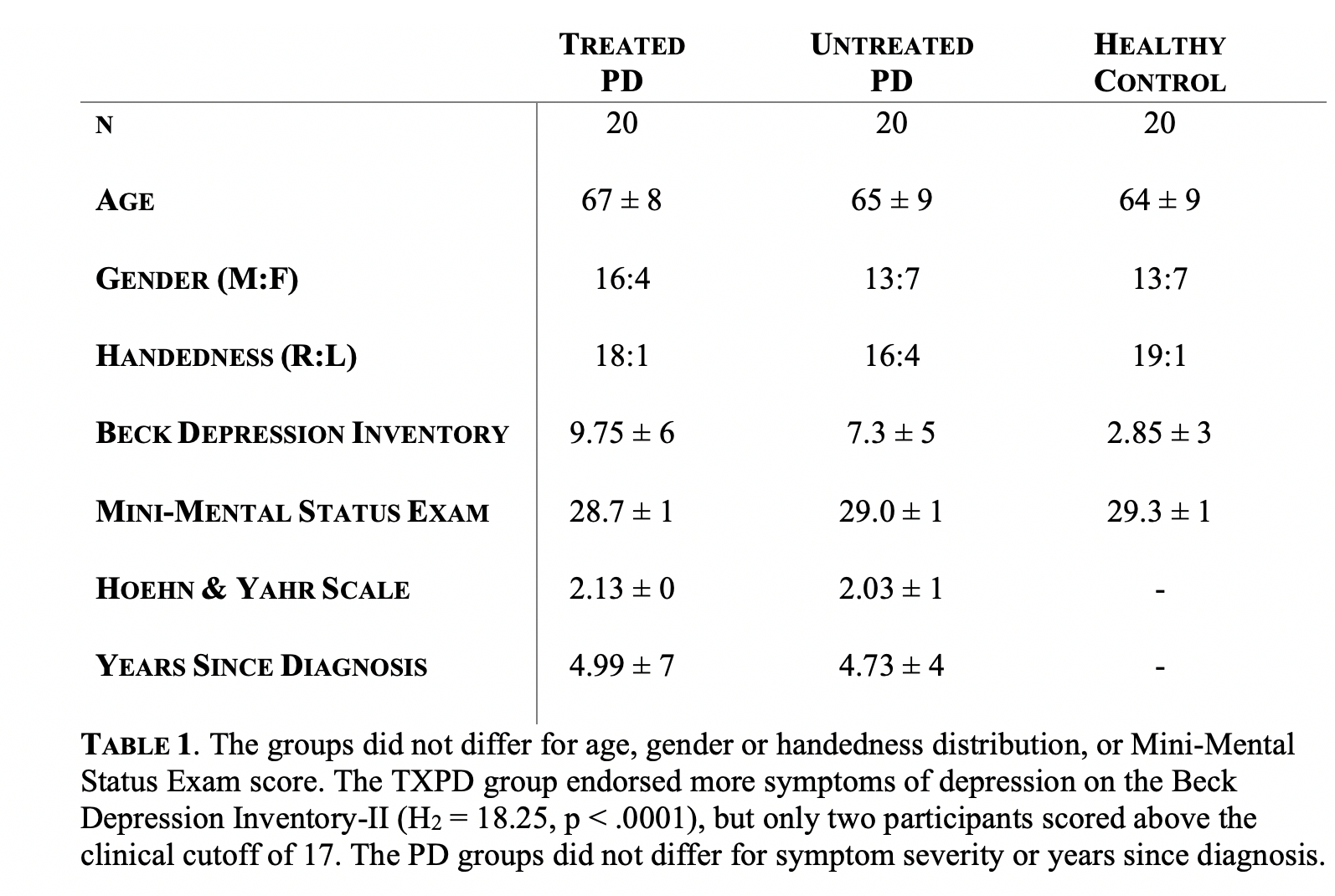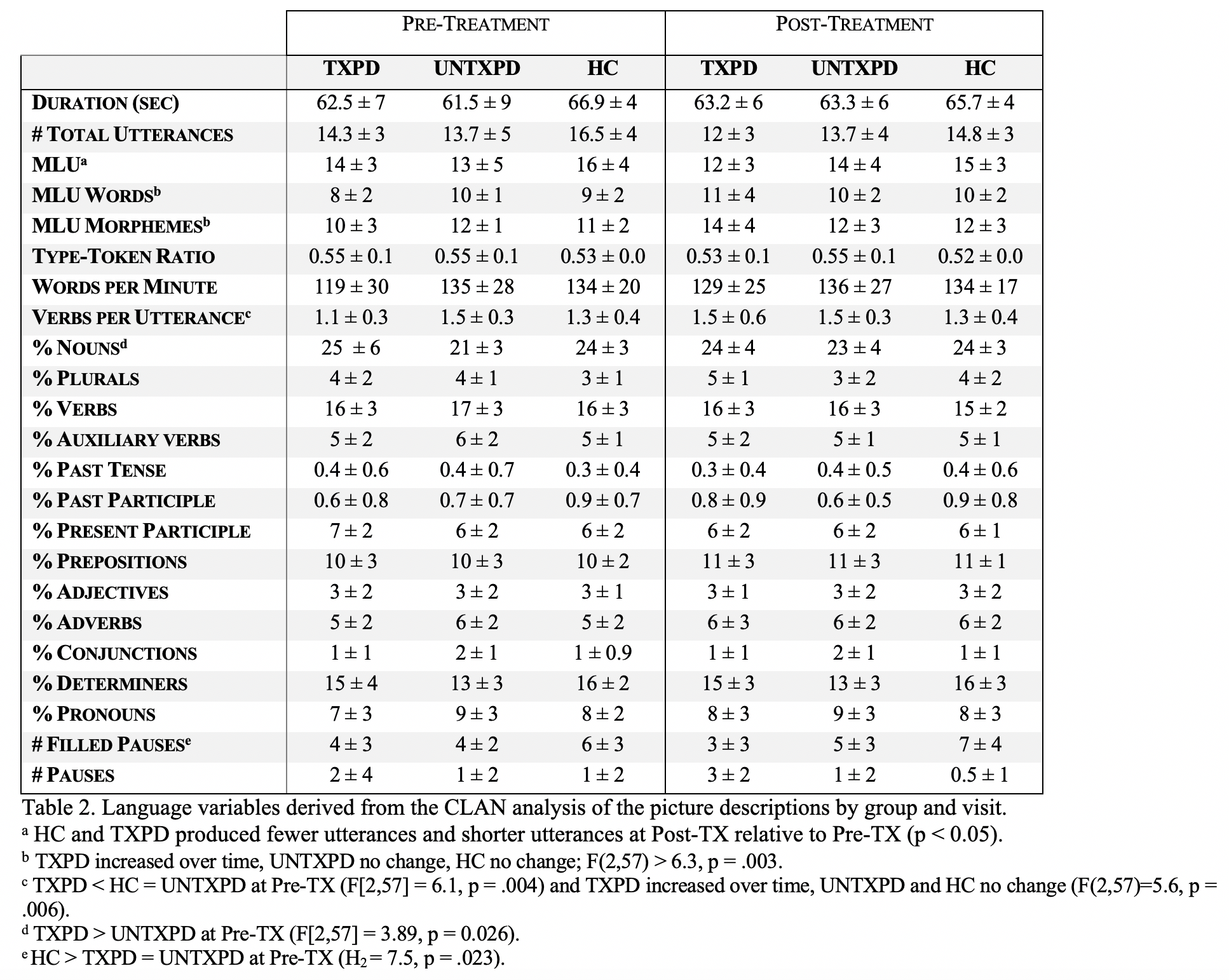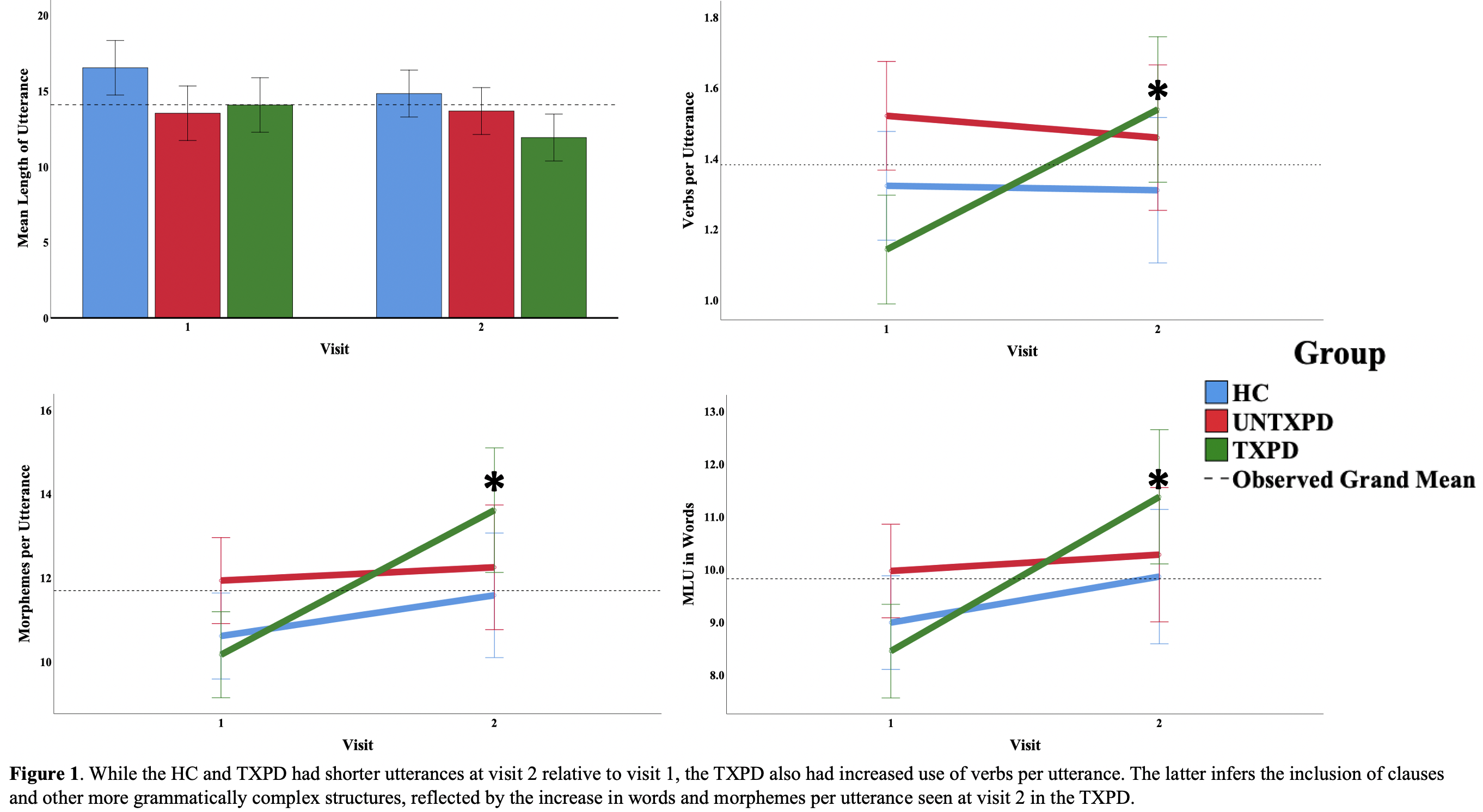Category: Parkinson's Disease: Cognitive functions
Objective: To identify changes in language production secondary to voice treatment in speakers with Parkinson’s disease (PD).
Background: Given the role of voice in language expression, we pose that optimizing vocal function may lead to improved language production. Verb production is an area of language deficit in PD (1), particularly for verbs associated with an individual’s location of impairment (upper vs. lower limbs (2)). It is thought that damage to the motor system, given its connection action verbs, underlies this lexical effect. If this is the case, then treatment improving vocal motor function may also improve access to action verbs.
Method: Twenty participants with PD underwent a 4-week voice treatment (TX) in an IRB-approved randomized controlled voice treatment trial. The TXPD along with 20 untreated PD (UNTXPD) and 20 age-matched neurotypical control (HC) participants (3) provided 1-minute picture description narratives at baseline (V1) and 4-weeks later (V2). Language samples were transcribed by raters blinded to group and analyzed using Computer Language Analysis (4). Pre-TX between-group comparisons established differences in demographic, PD severity, and language variables. Pre-post TX within- and between-group comparisons identified effects of visit and isolated treatment effects in the TXPD relative to UNTXPD and HC. Neuropsychological measures of executive functions and memory were administered as potential predictors of treatment effects on language performance.
Results: The PD groups did not differ for symptom severity or years since diagnosis, but the TXPD endorsed more symptoms of depression than UNTXPD and HC groups [table 1]. Prior to TX, TXPD produced fewer verbs per utterance and fewer propositional ideas than the other groups [table 2]. Over time, TXPD and HC produced fewer utterances and had decreased mean utterance length (MLU), but TXPD produced more words, morphemes and verbs per utterance at V2 [figure 1]. These changes were not predicted by executive function or memory measures.
Conclusion: Intervention improving vocal loudness was associated with improved verb use in PD. No demographic, PD symptoms or cognitive variables predicted this change, suggesting that the voice TX enhanced motor system engagement as well as access to verbs. Linguistic theory poses that verbs are the core of sentence development; thus, improving verb use also led to production of more complex grammar.
References: 1. Johari K, Walenski M, Reifegerste J, Ashrafi F, Behroozmand R, Daemi M, et al. A dissociation between syntactic and lexical processing in Parkinson’s disease. J Neurolinguistics. 2019 Aug;51:221–35. 2. Roberts A, Nguyen P, Orange JB, Jog M, Nisbet KA, McRae K. Differential impairments of upper and lower limb movements influence action verb processing in Parkinson disease. Cortex. 2017 Dec 1;97:49–59. 3. Ramig L, Halpern A, Spielman J, Fox C, Freeman K. Speech treatment in Parkinson’s disease: Randomized controlled trial (RCT). Mov Disord. 2018;33(11):1777–91. 4. MacWhinney B. The CHILDES Project: Tools for Analyzing Talk (third edition): Volume I: Transcription format and programs, Volume II: The database. Comput Linguist. 2000 Dec;26(4):657–657.
To cite this abstract in AMA style:
A. Ramage, C. Fox, A. Halpern, L. Ramig. Improved verb use in Parkinson’s disease following intensive voice treatment [abstract]. Mov Disord. 2020; 35 (suppl 1). https://www.mdsabstracts.org/abstract/improved-verb-use-in-parkinsons-disease-following-intensive-voice-treatment/. Accessed December 23, 2025.« Back to MDS Virtual Congress 2020
MDS Abstracts - https://www.mdsabstracts.org/abstract/improved-verb-use-in-parkinsons-disease-following-intensive-voice-treatment/



